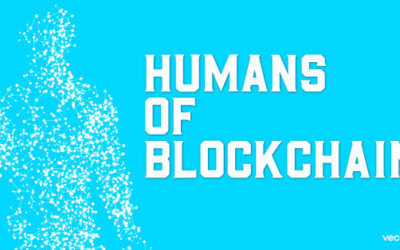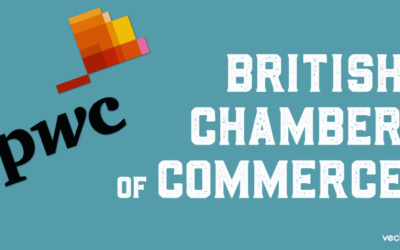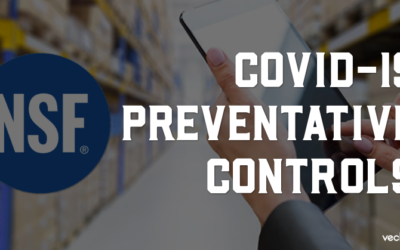On June 25th, Walmart China announced the creation of a Blockchain Food Safety and Traceability Platform alongside partners VeChain, PwC, China Chain Store and Franchise Association (CCFA), Kerchin, and various other food producers. Walmart will use VeChain’s blockchain technology to verify products along the supply chain, increasing consumer trust. Customers will be able to scan products directly through WeChat as they browse products in stores.
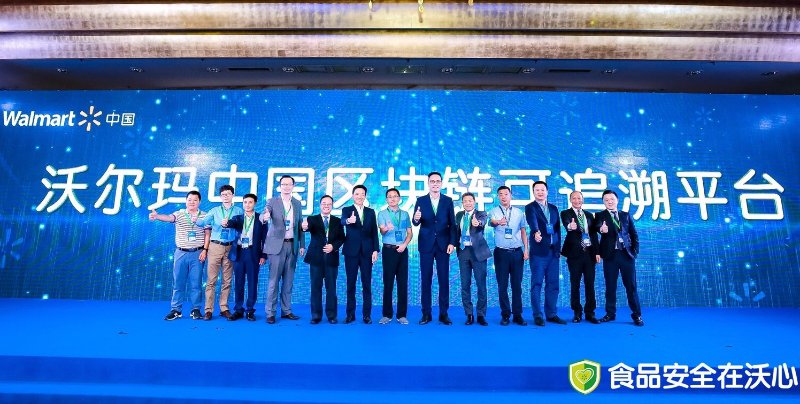
What’s the significance?
Food safety and product verification were always recognized as a use case blockchain could have a major impact on. Industry-wise, the painfully slow development process has gone on for years, leaving only an underwhelming slew of pilots and proposed solutions to show for it. Walmart China’s platform is the closest we’ve seen to a fully mature implementation, with 23 active product lines making a major spike of traffic on the VeChain mainnet.
Walmart China is making notable progress in a competitive market. A revenue of $10.7 billion in 2018 gives them the 4th highest market share of all retailers, a strong return from their 443 nationwide locations and online platforms. Walmart Global boasts a higher-than-average inventory turnover, which reflects positively on their ability to rapidly stock and sell inventory, an important metric for forecasting blockchain traffic.
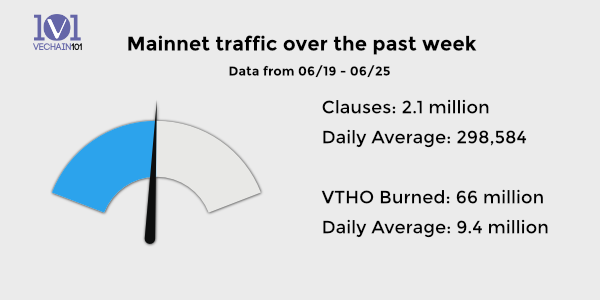
With 23 product lines already available, the platform is already burning more than one fourth of the average VTHO produced each day. With plans for Walmart to expand a further 100 product lines this year, it’s easy to imagine the large VTHO surplus quickly becoming a dwindling reserve, especially when considering that Walmart China is just one of a number of multinational partners. This creates some very encouraging scenarios for VeChain investors, who might suddenly find the token in high demand. If these scenarios were to play out, the foundation would need to increase the VTHO generation rate, providing VET holders with an even higher rate of return.
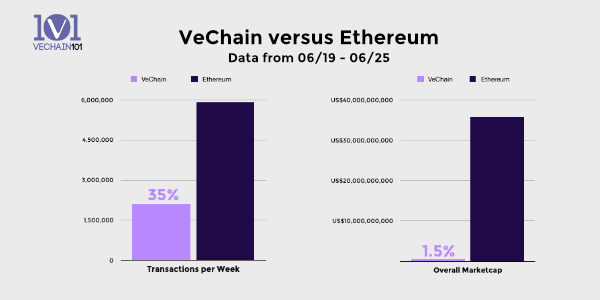
Who is watching?
Over the last two decades, China has been hit by a string of food safety scandals that have rocked public trust. These include counterfeit milk formula, heavy pesticide use, re-processed dead pork, and recycled “gutter” cooking oil. The Walmart China announcement took place as part of China Food Safety Publicity Week, hosted by 23 government departments, including the food safety commission of the State Council and the National Health Commission. The state council and Communist Party have recently proposed goals that would see 97% of food fulfill food safety requirements by 2020, placing pressure on farmers and manufacturers to improve. This partnership illustrates the usefulness of blockchain technology to government and corporate organizations, setting a trend for food producers, retailers, and policy-makers to follow.
As a co-host of the event, the China Chain Store and Franchise Association (CCFA) is not to be overlooked. They are a non-profit organization that represents retailers and franchises in policy-making and industry management, including most of the large franchises such as Walmart, Carrefour, and Tesco. Being able to give the CCFA a firsthand glimpse of VeChain’s blockchain technology is yet another positive takeaway from the partnership announcement.
The Future of Shopping in China
In the land where eCommerce, delivery services, and mobile payments are ubiquitous, it’s not unreasonable to expect blockchain solutions to be massively popular.
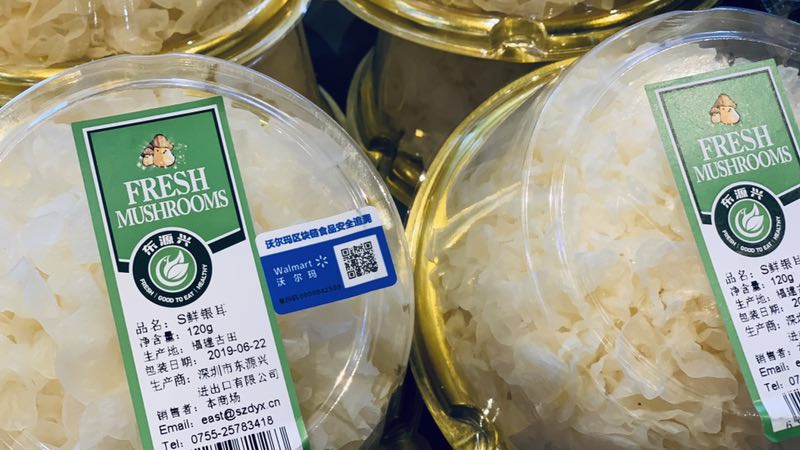
As the top employer in the US, Walmart knows the importance of innovating to maintain or gain market share. Over the past few years, Walmart China has made significant investments in technological partners, including China’s second largest eCommerce company, JD.com. This strategic alliance allows them to offer their products through a platform that saw 352 million active users in the last quarter of 2018. In addition to eCommerce, Walmart China is focusing on last mile delivery, as fleets of eBikes bring products directly to the door of consumers, with a delivery time guarantee of under an hour.
Blockchain is the latest attempt to improve the online-to-offline (o2o) customer experience. Customers browsing the physical stores are now able to scan food items using WeChat, to learn more about the products they are considering. Walmart-China recognizes the importance of this, as a joint industry report (JD.com and Walmart) in 2018 highlighted the fact that “product quality” was the most sought after trend, edging out “convenience” and “value for money” in a survey of Chinese consumers. This makes the VeChain-powered solution an integral part of their core business offering, as having verified data about products will make their goods much more attractive.
Long-term, it’s not unreasonable to expect nearly all food products to have their own unique data that consumers can view and provide feedback on when shopping both online or in physical stores. QR codes have essentially replaced cash in modern China, and their power to convey information gives blockchain a fully developed infrastructure to build on. This is an area Walmart and VeChain are primed to take advantage of as they continue to innovate and empower consumers.
Additional statistics: Wal-Mart 2018 10k




